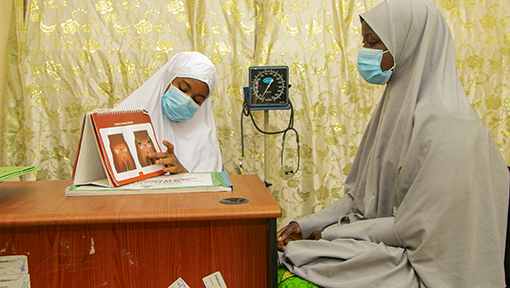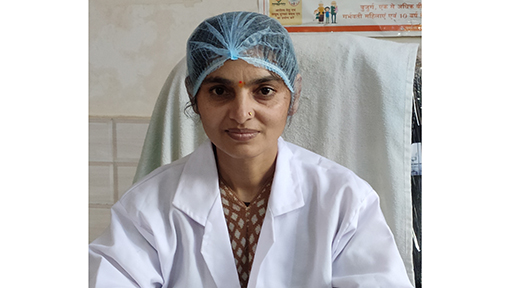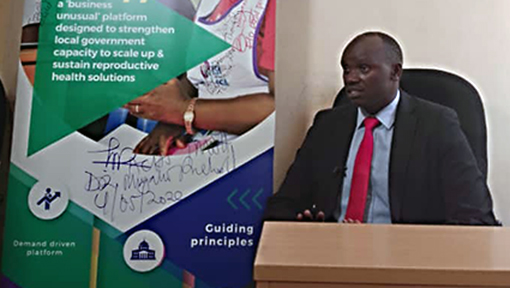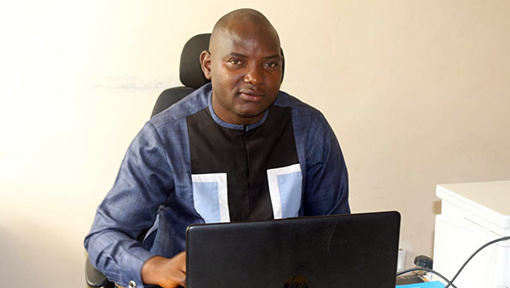TCI’s RAISE Tool Helps Health System and Four Municipalities Collaborate Better in Ziguinchor, Senegal
Contributors: Moussa Faye, Fatima Sow and Sarah Brittingham
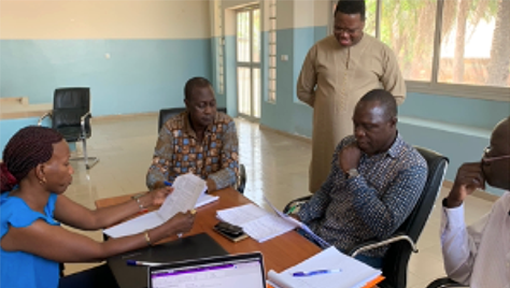 The Challenge Initiative (TCI) is all about sustainable scale with impact of its family planning and adolescent and youth sexual and reproductive health (AYSRH) interventions, so local government ownership is at the center of how it does business. As a result, TCI recently brought municipal stakeholders in Ziguinchor, Senegal, to the table to collaborate more fully with the health system. This was accomplished through the introduction of TCI’s Reflection and Action to Improve Self-reliance and Effectiveness (RAISE) tool.
The Challenge Initiative (TCI) is all about sustainable scale with impact of its family planning and adolescent and youth sexual and reproductive health (AYSRH) interventions, so local government ownership is at the center of how it does business. As a result, TCI recently brought municipal stakeholders in Ziguinchor, Senegal, to the table to collaborate more fully with the health system. This was accomplished through the introduction of TCI’s Reflection and Action to Improve Self-reliance and Effectiveness (RAISE) tool.
The RAISE tool assesses the intensity and effectiveness of implementation of TCI’s high-impact best practices, while gauging progress towards ownership and sustainability of family planning and AYSRH programs. RAISE, which is conducted quarterly by government staff, uses a standard set of indicators to help them reflect on four key domains:
- Political and financial commitment
- Capacity (knowledge) transfer of family planning skills
- Institutionalization of TCI’s high-impact best practices at all levels of the health system
- Sustained demand through improved attitudes and behaviors towards family planning
Three rounds of the tool have been completed in Ziguinchor, where the overall score improved from 55% to 71% to 73%. A key challenge diagnosed by the tool was a disconnect between Ziguinchor’s municipalities and its health system. As a result, TCI coached both sets of stakeholders behind the scenes to foster a win-win collaborative mechanism to help them achieve Ziguinchor’s 2020 family planning and reproductive health goals.
RAISE helped Ziguinchor’s stakeholders identify and implement TCI’s key high-impact best practices, including special family planning days, community accountability to ensure quality of family planning services, and creation of a group of Young Transformational Leaders to advocate for the promotion of family planning and reproductive health.
Thanks to the development of a framework for health system governance, which was formally adopted by municipalities of Ziguinchor, Oussouye, Bignona and Thionck-Essyl and the medical region of Ziguinchor, collaboration and communication have improved, and municipalities now participate more effectively in health district meetings. Municipality stakeholders now communicate a clear understanding of their roles and responsibilities to the health system as well as the principles for implementing family planning and AYSRH activities.
Daouda Kone, TCI’s focal point in Bignona, recently shared:
RAISE enabled us to understand our roles vis-à-vis the Health District [and] how the health system implements FP/AYSRH activities.”
This enhanced collaboration across Ziguinchor’s four municipalities has also led to the mobilization of more resources for family planning and AYSRH. The region’s mayors increased their financial commitment for family planning by 25%, from FCFA 16 million to 20.5 million. In a recent coordination meeting for the health district of Bignona, one of Ziguinchor’s districts, Ms. Nadine Bassene, RH coordinator of the Bignona District said:
Thanks to RAISE, the Bignona municipality has increased its commitment to implementing FP/AYSRH activities by financing the JSPFs [Special Family Planning Days]. This has improved service delivery and access to FP services for many more women.”

